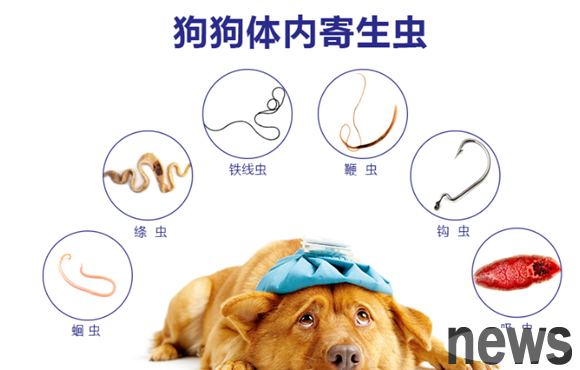Parasite infections are one of the common problems in dog health. They not only cause physical discomfort to the dog, but may also affect the overall health of the dog, and in severe cases even life-threatening. As a responsible pet owner, understanding the common symptoms of these parasite infections and how to effectively prevent and treat them is essential to protect the health of our dogs. Below, I will share five common symptoms of dogs infected with parasites, as well as some effective prevention and treatment strategies.

Common Symptoms
Indigestion, diarrhea, or constipation: This is one of the most common symptoms of parasitic infections. If you find that your dog suddenly loses appetite, or has digestive system problems such as diarrhea and constipation, this may be a sign of parasite infection. Especially when diarrhea is covered with blood or when the dog is obviously in pain and restless, the possibility of parasite infection should be taken into account immediately.
Weight loss: Although the dog's appetite is still increasing as usual, its weight is constantly declining, which may be caused by internal parasites absorbing the nutrition needed by the dog. Especially when dogs seem to eat well but are still thin, they should be more vigilant about parasitic infections.
Dry hair, skin problems: Parasitic infections can affect the nutritional absorption of dogs, causing hair to become dry and dull, and various problems in the skin may also occur, such as erythema, rash or hair loss. If you find that your dog's fur condition suddenly becomes worse, you might as well consider whether it is caused by the parasite.
Anal gliding: If you are observed that your dog often drags his anus on the ground, it may be due to itching caused by parasites around the anus. This behavior is usually a way for dogs to try to relieve discomfort.
Vomiting: Parasites, especially gastrointestinal parasites, may cause symptoms of vomiting in dogs. If there is a parasite in the vomit, it is even more certain that it is a parasite infection.

Prevention and control strategies
Regular deworming: Regular deworming dogs is one of the most effective ways to prevent parasitic infections. According to the veterinarian's advice, regular internal and external deworming can greatly reduce the risk of dogs being infected with parasites.
Maintain environmental sanitation: Keeping the dog's living environment clean and hygienic, and regularly cleaning dog's excrement can reduce the spread of parasite eggs. At the same time, avoid exposing dogs to potentially contaminated water and food.
Healthy Diet: Provide a balanced diet that ensures that dogs consume enough nutrition, which can enhance their immunity and help them fight parasitic infections.
Seek medical treatment in time: Once the dogs are found to have the above symptoms, they should be taken to the veterinarian immediately for professional diagnosis and treatment. Timely treatment can effectively control parasitic infections and reduce the impact on dog health.
Immunization: While vaccines cannot directly prevent parasitic infections, maintaining dogs’ vaccination programs can help them maintain good overall health and indirectly reduce the risk of infection.
or above are some symptoms and strategies, I hope they will be useful to you!